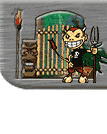





 |
 |
 |
||
 |
 |
 |
||
|
|
|
|
|
|
| Home : Ecological Module : Web Activity | ||
|
Web Activity: Write a Paragraph Individualization
Trying New Ideas: Approaching
new teaching/learning roles When we come to believe that students all matter and that teacher student and content are important, we also realize that the huge span of ability in the classroom is our greatest gift and our biggest threat to good education. It is also the most critical factor in balancing the voices in education and in the community. Wide ranges in ability and numerous kinds of intellectual gifts mean that we perceive delivery of content as though students are capable of being co-teachers, not just recipients, and we develop prototypes and materials for students to self monitor, self instruct, self correct, and in addition, help one another, or work in cooperative peer groupings, either as pairs or as learning groups. In order to satisfy this diverse range of subjects, methods and skill levels, the teacher has to learn to "let go." No longer can a teacher be in charge of every moment. Now students must be trusted to:
We also need to rethink the teaching role as less a "professor" or disseminator of knowledge and more as a facilitator.
I go to the old book depository and pick up workbooks that teach the continuum of skills, so students have models of ways to learn, and can choose the tests in the book or activities already written out to prove their skills. I may support a group's limits by helping them, facilitating learning, because I'm not up at the front talking all the time. I now have time to move from group to group, nudging, supporting, creating better ways to get a point across. I set up time on Friday for each student to plan the coming week's objectives and also set up monitoring moments that mean most of the class can wind up providing evidence of the week's work in under ten minute's time. "Checking progress" means having students come to my desk, provide proofs of the past week's activities and show assignments that are peer checked or self checked, to make certain the student is getting good advice or really understands the concepts and content. Yes, a few students will take advantage of the situation, but a lot fewer than most people think. In fact, I used these techniques to teach reading and math, and found the students made between two and three years of progress in one year, just by being trusted and getting to go at a personal pace that matched what they could learn. It was amazing how much it made them want to learn! I found a lot of good literature and ideas for implementation by reading about "writing workshop", in multi-age multi-graded material, individualization. Of course the thing that really worked was believing in myself and trusting that day by day, as I made mistakes and took risks, I would be getting better and better at it.... and I did!
You will want to address issues like teaching role, the value of content, balancing the needs of the student with the needs of the teacher, the importance of preparing the student for success in life, yet understanding the importance of letting the student become who he or she is, and honing the personal gift of self. You should now go to the virtual conference center.
Once you have completed this topic you should: Go on to
Assignment 3
|
||
| E-mail J'Anne Ellsworth at Janne.Ellsworth@nau.edu | ||
|
Course Created by J'Anne Ellsworth & Center for Technology Enhanced Learning Copyright
© 2001 Northern Arizona University |
 |
 |
 |
 |
 |
|